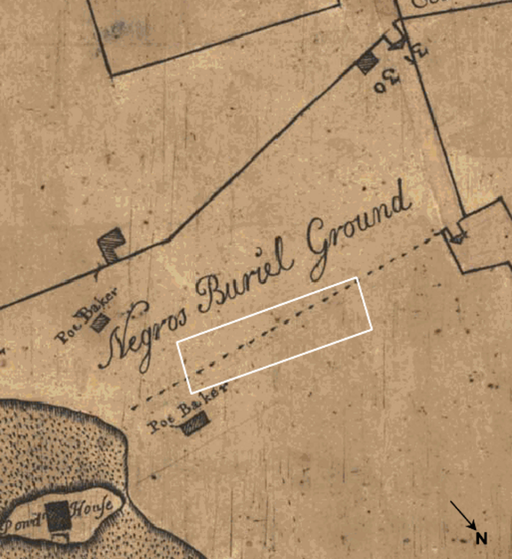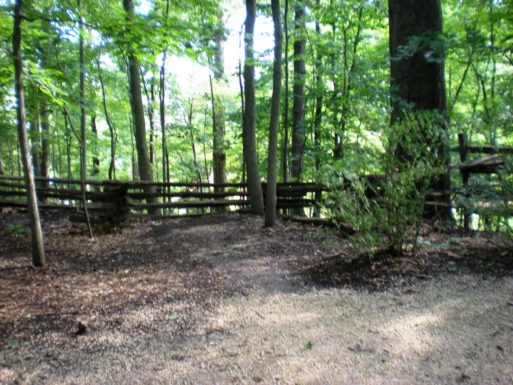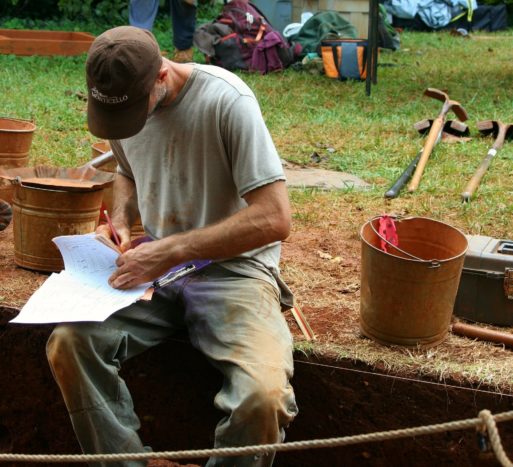
Oftentimes, documentation of an African American burial ground
such as this map has been lost
Almost 50 years ago, a Joni Mitchell lyric protested against decisions to “pave paradise to put up a parking lot” in the name of progress. Replacing a natural habitat with new construction becomes even more problematic when it is discovered that the upheaval occurs on sacred ground.
In the midst of new development and archaeological surveys, evidence can be uprooted that indicates a site, often located in a Southern state, was once an undocumented African American burial ground. These cemeteries typically were not recorded on local and state government maps. Rocks may have served as headstones. Markings on the gravesites, if any, did not last long. Even if the markings were decipherable, slaves were known to use codes to designate graves on plantation grounds. Thus, as time passed, these hallowed spaces became all but invisible.
Several discoveries of these forgotten cemeteries occurred during construction projects just this past year. These include the remains of a 19th century African American burial ground in Philadelphia, a previously unknown slave cemetery in Crownsville, Maryland, and 95 unmarked graves of African American prison inmates in Fort Bend County, Texas. Based on chains found near the unmarked graves, it’s believed the Texas prisoners had been forced to work in sugar fields long after emancipation became the law of the land.

Slave burial ground in Mount Vernon
Credit: flickr.com
Protecting the Past
The recent findings in Pennsylvania, Maryland and Texas are but a few of the many times in which the lives and eternal resting places of African Americans were “lost” to written history. New legislation proposed to Congress last month would protect lost African-American burial grounds, and pave the way for the creation of a database for tracking the historic areas. The bill reflects the combined efforts of Congressman A. Donald McEachin, who represents Virginia’s 4th District, and Congresswoman Alma Adams, of North Carolina’s 12th District. If passed, the legislation would protect newly discovered historic burial sites as a part of the National Parks Service.
According to Forbes magazine, the database and NPS designation would make available “technical assistance to record and evaluate these spaces, establish educational materials for local community members, and make grants available for further research at sites within the network.” This would result in communities being better informed when making development decisions as they become better able to identify and record burial grounds and preserve local history.
Ancestry Will Become More Accessible
Reclaimed African-American burial sites have been steadily discovered for decades. The largest, believed to contain the remains of 15,000 slaves, was discovered in New York City in 1991 when construction began on a 34-story federal office tower. The new bill would help create an African American Burial Grounds Network, so that graveyards like those found in New York, as well as the more recent discoveries in Pennsylvania, Maryland and Texas, could be researched, documented and preserved. The nationwide initiative to centralize the information about the buried generations will better able countless ancestors to trace their roots, as well.

 Congressional Bill Seeks to Protect Undocumented African American Burial Grounds
Congressional Bill Seeks to Protect Undocumented African American Burial Grounds



 How to Comfort A Dying Loved One
How to Comfort A Dying Loved One
 Our Annual Seven Holiday Gifts for Someone Who Is Grieving, 2024 Edition
Our Annual Seven Holiday Gifts for Someone Who Is Grieving, 2024 Edition














